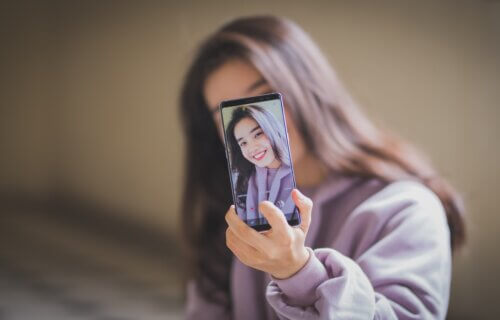NEW YORK — Only three percent of people claim they’ve never shared a filtered selfie online. A recent survey of 1,000 millennials and 1,000 Gen X respondents found 45 percent have filtered a photo of themselves to add special effects, while 43 percent have done so to hide skin imperfections or alter the background.
On average, 52 percent of all selfies shared online are filtered. A whopping 73 percent of people are focused on hiding their imperfections from others, with uneven skin tone (37%) being at the top along with certain body parts they’re self-conscious of next in line (35%). Millennials were found to be more obsessed with hiding their flaws than Gen X, particularly unclear speech (37% vs. 27%) and vision impediments (35% vs. 27%).
While eight in 10 respondents feel that posting filtered selfies has had a positive impact on their self-image, it’s not always necessary. In fact, 58 percent say they’ve recently posted a completely unfiltered one.
Conducted by OnePoll on behalf of skincare brand, NEOSTRATA, the survey also reveals that skin flaws may leave people feeling insecure. Life events such as birthday parties (37%), family dinners (36%), meetups with friends (36%), office parties (36%) and weddings (36%) have all been missed upon discovering a skin imperfection.
Additionally, skin woes have caused people to avoid restaurants (50%), offices (49%), shops (47%) and even going to the doctor (40%).
How does social media impact skin care?
More than three-fourths (76%) think social platforms have had a positive impact on skin care, with 47 percent saying it has increased awareness of skin health. Two in five (40%) feel more educated about taking care of their skin and 36 percent feel more represented thanks to social content.
“Celebrities and influencers aside, social media has made trusted resources from medical experts such as board-certified dermatologists, and dermatologist found skincare brands more accessible than ever before,” says spokesperson for Neostrata, Dr. Suchismita “Tia” Paul, in a statement. “Our research shows millennials are proactive when it comes to their skin care routine, even seeking inspiration from dermatologists and experts via social media more so than Gen X does (53% vs. 45%).”
Respondents largely experienced acne scars (54%) and discoloration (38%) as early as teen years, and issues such as wrinkles (52%), dry skin (50%), and skin sensitivity (33%) have increased in adulthood.
More than half (53%) have tried an influencer hack specifically for their skin, and 91 percent said they’d do it again.
“Seventy-eight percent of those polled said they’ve been using the same skincare products for many years. Your skin changes as you age, and so should your skincare routine,” adds Dr. Paul. “Knowing uneven skin tone is a top concern, I recommend consumers look for products with clinically proven ingredient like Vitamin C that are backed by strong research and clinical studies to help address their specific skin concerns.”
Survey methodology:
This random double-opt-in survey of 1,000 U.S. millennials and 1,000 U.S. Gen X respondents who use social media and skin care products was commissioned by Neostrata between Jan. 12 and Jan. 26, 2023. It was conducted by market research company OnePoll, whose team members are members of the Market Research Society and have corporate membership to the American Association for Public Opinion Research (AAPOR) and the European Society for Opinion and Marketing Research (ESOMAR).
